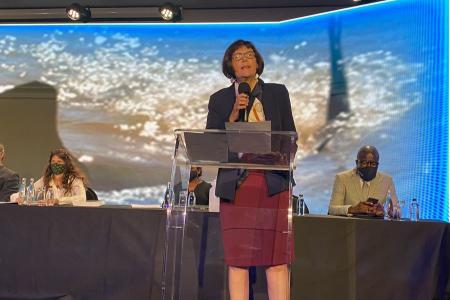World Fisheries Day
Introduction
World Fisheries Day is celebrated every year on 21st November throughout the world by fishing communities, non-government officials, fishing associations and government departments. The day helps to highlight the critical importance of fish and the lives they sustain, both in and out of water.
A recent United Nations study reported that more than two-thirds of the world's fisheries have been overfished or are fully harvested and more than one third are in a state of decline because of factors such as the loss of essential fish habitats, pollution, and global warming.
Fish forms an important part of the diets of people around the world, particularly those that live near rivers, coasts and other water bodies. A number of traditional societies and communities are rallied around the occupation of fishing. This is why a majority of human settlements, whether small villages or mega cities, are situated in close proximity to water bodies. Besides the importance of water for survival and as a means of transportation, it is also an important source of fish and aquatic protein.
But this proximity has also lead to severe ocean and coastal pollution from run-off and from domestic and industrial acticities carried out near-by. This has led to depetion of fish stocks in the immediate vicinity, requiring fishermen to fish farther and farther away from their traditional grounds. Besides, overfishing and mechanisation has also resulted in a crisis - fish sticks are being depleted through 'factory' vessels, bottom trawling, and other means of unsustainable fishing methods.
Unless we address these issues collectively, the crisis will deepen.
Aims and objectives for the observation of World Fisheries Day
- World Fisheries Day highlights the critical importance to human lives, of water and the lives it sustains, both in and out of water. Water forms a continuum, whether contained in rivers, lakes, and ocean.
- As a result, the day helps to highlight related problems, and moves towards finding solutions to the increasingly inter-connected problems we are facing, and in the longer term, to sustainable means of maintaining fish stocks.
South Africa's commemoration of 2020 World Fisheries Day
The Department of Environment, Forestry and Fisheries will utilise this day to launch the recommendations of the report to review the South African National Plan of Action for Sharks (NPOA sharks).
In May 2020, following public concern about shark populations along the South African coast, the Minister appointed an Expert Panel to formally review South Africa’s National Plan of Action for the Conservation and Management of Sharks (NPOA-Sharks).
The nine-member panel comprising of national and international experts reviewed South Africa’s National Plan of Action for the Conservation and Management of Sharks (NPOA Sharks) to determine whether the Plan is effective and where improvements need to be made.
The aim of the expert panel of Sharks was to provide an independent critical appraisal of the South African NPOA sharks and its recent internal review. The outcome of this process forms the basis for the updated NPOA sharks, which provides a roadmap for the implementation of actions related to the conservation and management of sharks and their long-term sustainable use in South Africa.
In their review process, the EP were guided by the specific aims outlined in the International Plan of Action for the Conservation and Management of Sharks (IPOA) developed by the FAO committee on Fisheries in 1998, within the framework of the code of conduct for responsible fisheries to which South Africa is a signatory.
The specific aims are outlined below:
- Ensure that shark catches from directed and non-directed fisheries are sustainable
- Assess threats to shark populations, determine and protect critical habitats and implement harvesting strategies consistent with the principles of biological sustainability and rational long-term economic use
- Identify and provide special attention, in particular to vulnerable or threatened shark stocks
- Improve and develop frameworks for establishing and co-ordinating effective consultation involving all stakeholders in research, management and educational initiatives within and between States
- Minimise unutilised incidental catches of sharks
- Contribute to the protection of biodiversity and ecosystem structure and function
- Minimise waste and discards from shark catches in accordance with article 7.2.2.(g) of the Code of Conduct for Responsible Fisheries (for example, requiring the retention of sharks from which fins are removed)
- Encourage full use of dead sharks
- Facilitate improved species-specific catch and landings data and monitoring of shark catches
- Facilitate the identification and reporting of species-specific biological and trade data.
Speech
Address by Minister Barbara Creecy, MP, during the Expert Panel Review of South Africa’s National Plan of Action for the Conservation and Management of Sharks
It gives me great pleasure to be here today to present the panels’ findings and recommendations, in recognition of World Fisheries Day.
This day is significant because it serves as an annual reminder of how South Africa is blessed with a wide variety of fisheries resources, but also that we have to sustainably manage and adequately protect the ecosystems that harbour these finite resources.


